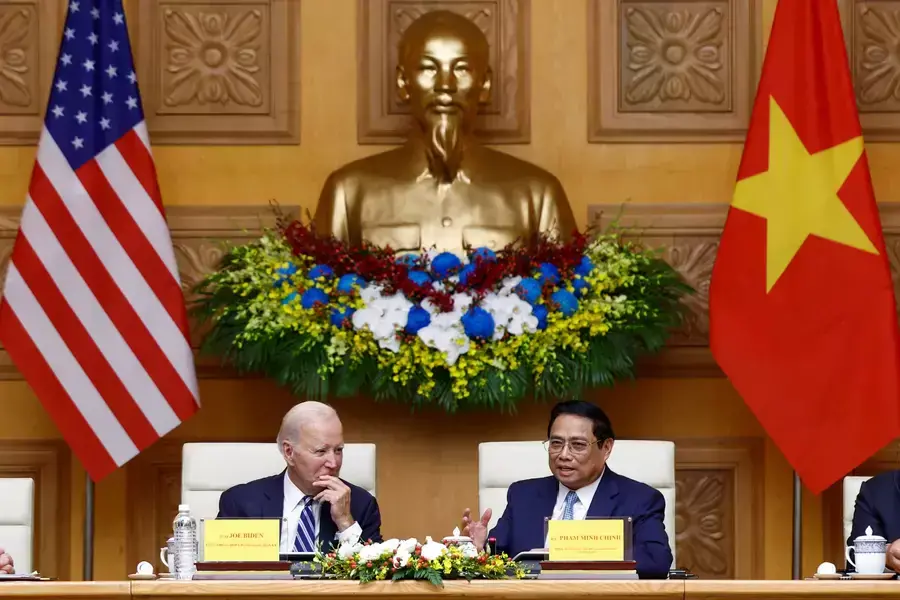Assessing the Bolstered U.S.-Vietnam Relationship

This week, President Joe Biden visited Hanoi to unveil a historic upgrade in the United States’ relationship with Vietnam to a comprehensive strategic partnership. Vietnam pursues a “multidirectional foreign policy,” which it defines as “develop[ing] diverse and dynamic bilateral relations with all nations,” and the comprehensive strategic partnership is its highest level of diplomatic engagement with foreign countries. Hanoi has comprehensive strategic partnerships with China and Russia, but it hesitated in elevating relations with Washington up to this point.
This new, higher-level partnership will likely boost military-to-military ties between the two countries, as well as closer cooperation on issues such as climate change. At an innovation summit to round out his trip to Hanoi, Biden called on leading U.S. technology and aviation firms to expand their collaboration with Vietnamese companies. But the Biden administration has received criticism from rights groups and some in Congress for its increased engagement with Vietnam as the latter’s human rights record has worsened in recent years. In fact, Vietnam has become one of the most repressive governments through its suppression of speech and persecution of activists. Still, such criticisms do not seem likely to affect the bilateral relationship, unlike the 1990s and 2000s, when such criticisms were a stumbling block in U.S.-Vietnam ties. Now, the White House simply considers Vietnam too strategically important.
More on:
This major step forward in the bilateral relationship was likely a response to Vietnam’s growing concerns about China’s actions in the region, and the response from most of Vietnam’s ASEAN neighbors (save the Philippines and Singapore) to Beijing’s activities. Vietnam is principally concerned by China’s aggressive behavior in the South China Sea, to which Vietnam holds competing territorial claims. At the same time, other Southeast Asian nations such as Laos and Myanmar are increasingly leaning toward China. Most concerning is treaty ally Thailand: at this point, it remains unclear whether the United States could rely on Bangkok in the case of a regional conflict with China.
However, Vietnam’s decision to strengthen ties with the United States will not lead to abandoning its multidirectional foreign policy. Vietnam is heavily economically dependent on China, and it would be difficult to disentangle their economies. Nor has Vietnam shunned Russia in the wake of its war against Ukraine—Moscow supported Hanoi in the Vietnam War and has long been its primary arms supplier. As the New York Times recently reported, Vietnam plans to purchase a cache of Russian weapons despite potential U.S. sanctions.
Thus, Vietnam’s new comprehensive strategic partnership signals a growing level of shared interests with the United States, but that does not mean Hanoi will pull back from its other historical partners. Just as the rest of Southeast Asia refuses to choose a side in the increasing U.S.-China competition in the region, Vietnam will continue to hedge its bets.
More on:
 Online Store
Online Store